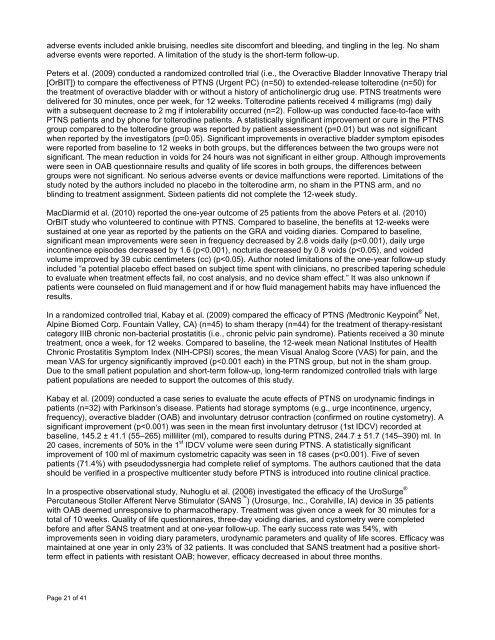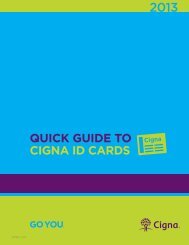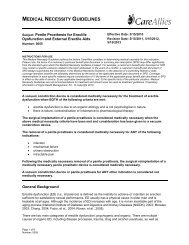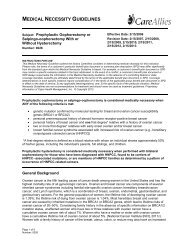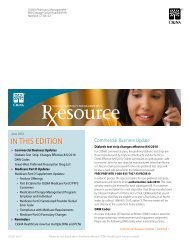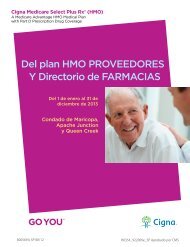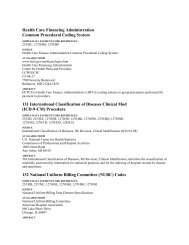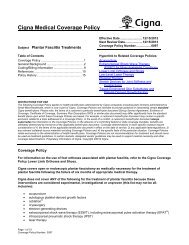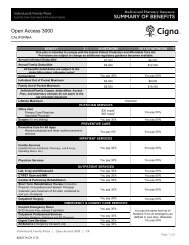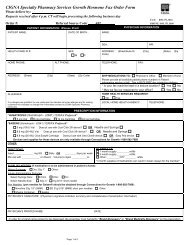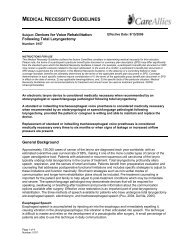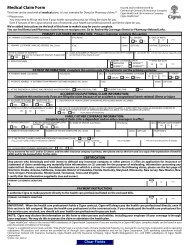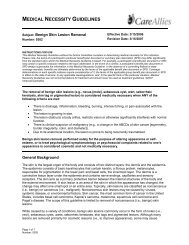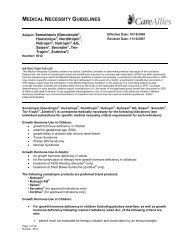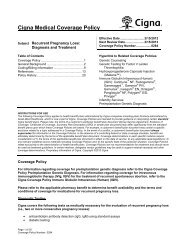Electrical Stimulators - Cigna
Electrical Stimulators - Cigna
Electrical Stimulators - Cigna
You also want an ePaper? Increase the reach of your titles
YUMPU automatically turns print PDFs into web optimized ePapers that Google loves.
adverse events included ankle bruising, needles site discomfort and bleeding, and tingling in the leg. No sham<br />
adverse events were reported. A limitation of the study is the short-term follow-up.<br />
Peters et al. (2009) conducted a randomized controlled trial (i.e., the Overactive Bladder Innovative Therapy trial<br />
[OrBIT]) to compare the effectiveness of PTNS (Urgent PC) (n=50) to extended-release tolterodine (n=50) for<br />
the treatment of overactive bladder with or without a history of anticholinergic drug use. PTNS treatments were<br />
delivered for 30 minutes, once per week, for 12 weeks. Tolterodine patients received 4 milligrams (mg) daily<br />
with a subsequent decrease to 2 mg if intolerability occurred (n=2). Follow-up was conducted face-to-face with<br />
PTNS patients and by phone for tolterodine patients. A statistically significant improvement or cure in the PTNS<br />
group compared to the tolterodine group was reported by patient assessment (p=0.01) but was not significant<br />
when reported by the investigators (p=0.05). Significant improvements in overactive bladder symptom episodes<br />
were reported from baseline to 12 weeks in both groups, but the differences between the two groups were not<br />
significant. The mean reduction in voids for 24 hours was not significant in either group. Although improvements<br />
were seen in OAB questionnaire results and quality of life scores in both groups, the differences between<br />
groups were not significant. No serious adverse events or device malfunctions were reported. Limitations of the<br />
study noted by the authors included no placebo in the tolterodine arm, no sham in the PTNS arm, and no<br />
blinding to treatment assignment. Sixteen patients did not complete the 12-week study.<br />
MacDiarmid et al. (2010) reported the one-year outcome of 25 patients from the above Peters et al. (2010)<br />
OrBIT study who volunteered to continue with PTNS. Compared to baseline, the benefits at 12-weeks were<br />
sustained at one year as reported by the patients on the GRA and voiding diaries. Compared to baseline,<br />
significant mean improvements were seen in frequency decreased by 2.8 voids daily (p


